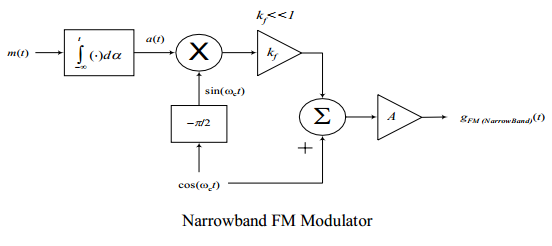Narrow Band Frequency Modulation
Narrowband Frequency Modulation (NBFM) is a type of frequency modulation (FM) that uses a relatively low frequency deviation and a narrow bandwidth. NBFM is often used for voice communications in radio systems and is considered an efficient and reliable method of communication for such applications.
In NBFM, the frequency deviation is typically limited to a small percentage of the carrier frequency, typically less than 5% of the carrier frequency. This narrowband modulation technique allows more channels to be allocated in a given frequency spectrum, making it a popular choice for communication systems with limited bandwidth, such as land mobile radio (LMR) systems.
NBFM is also known as narrowband FM or NFM. The narrow bandwidth of NBFM signals makes them more immune to frequency-selective fading, which can cause multipath distortion in wideband FM signals. The narrow bandwidth also allows for a higher signal-to-noise ratio (SNR) and better range performance compared to wideband FM signals.
One common application of NBFM is in two-way radio communications systems, such as walkie-talkies and public safety radios, where reliable and efficient voice communication is crucial. NBFM is also used in some telemetry systems and low-power wireless communication systems.
The above approximations for narrowband FM and PM can be easily used to construct modulators for both types of signals.
 |
| Narrowband FM Modulator |
 |
| Narrowband PM Modulator |


0 Comments
Do leave your comment